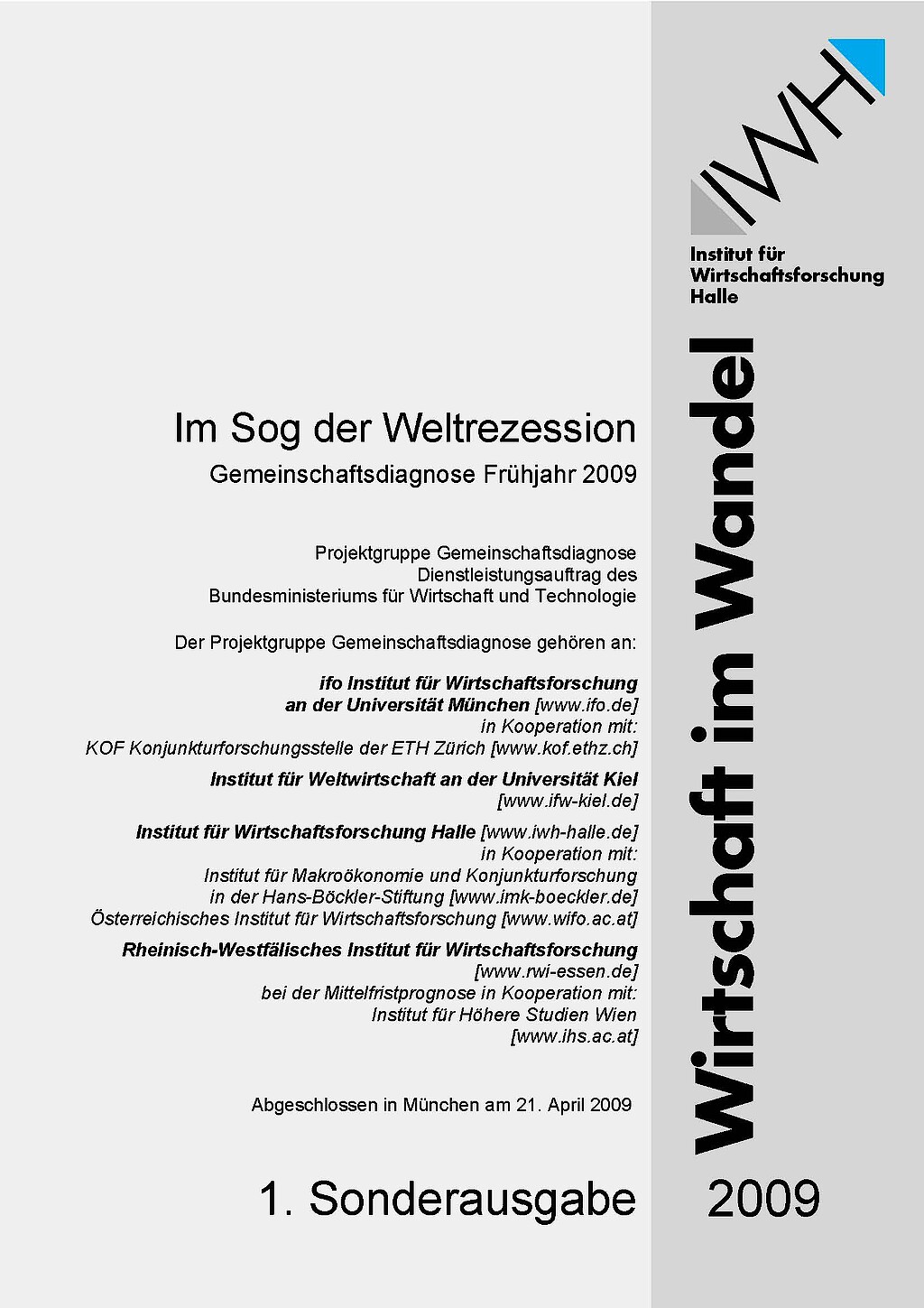
German Economy Drawn into the World Recession
Die Weltwirtschaft befindet sich im Frühjahr 2009 in der tiefsten Rezession seit der Großen Depression. Der Abschwung verschärfte sich im Herbst zu einem regelrechten Einbruch, der rasch nahezu alle Länder der Welt erfasste. Auch umfangreiche staatliche Programme zur Stützung des Finanzsektors und zur Belebung der Konjunktur konnten bislang das Vertrauen der Akteure in die zukünftige wirtschaftliche Entwicklung nicht wieder herstellen. Eine Abkühlung der Weltkonjunktur hatte sich bereits im Verlauf des Jahres 2007 angedeutet. Zu Beginn des vergangenen Jahres war die konjunkturelle Schwäche noch weitgehend auf die USA beschränkt. Danach setzte auch in den übrigen Industrieländern ein Abschwung ein. Die dramatische Zuspitzung der Situation an den Finanzmärkten im September 2008, die in dem Zusammenbruch der Investmentbank Lehman Brothers kulminierte, löste dann einen schweren Einbruch der Produktion aus, der auch die Schwellenländer erfasste, die sich zuvor noch recht robust gezeigt hatten. Die Stärke des Abschwungs im Winterhalbjahr 2008/2009 erklärt sich so auch daraus, dass die Produktion nahezu überall auf der Welt gleichzeitig auf Talfahrt war. Unter den Industrieländern waren von dieser Entwicklung Japan und Deutschland, deren Wirtschaften eine hohe Exportabhängigkeit aufweisen, besonders stark betroffen. Deutliche Hinweise auf ein Ende des Einbruchs sind bislang noch nicht erkennbar, auch wenn einige Indikatoren darauf hindeuten, dass Produktion und Nachfrage in den kommenden Monaten langsamer abnehmen werden. Nach Ansicht der Institute wird die Abwärtsbewegung wohl erst im Winterhalbjahr 2009/ 2010 auslaufen. Die sich anschließende konjunkturelle Belebung dürfte zunächst nur wenig Dynamik entfalten. Ein Kernproblem bleibt die anhaltende Verunsicherung an den Finanzmärkten, die vor allem auf Sorgen bezüglich der Solvenz einzelner Banken beruht und den Geldfluss zwischen den Wirtschaftsakteuren spürbar verlangsamt hat. In der Prognose ist unterstellt, dass die Situation an den Finanzmärkten vorerst labil bleibt, es aber nicht zu einer neuerlichen dramatischen Verschärfung der Lage kommt. In wichtigen Ländern kommt eine Depression am Immobilienmarkt hinzu, deren Ende noch nicht absehbar ist und die den Abschreibungsbedarf der Banken erhöht. Erfahrungsgemäß sind Rezessionen, die mit Immobilien- und Bankenkrisen einhergehen, tiefer und vor allem schwerer zu überwinden als Rezessionen, in denen solche Probleme nicht prominent sind.




